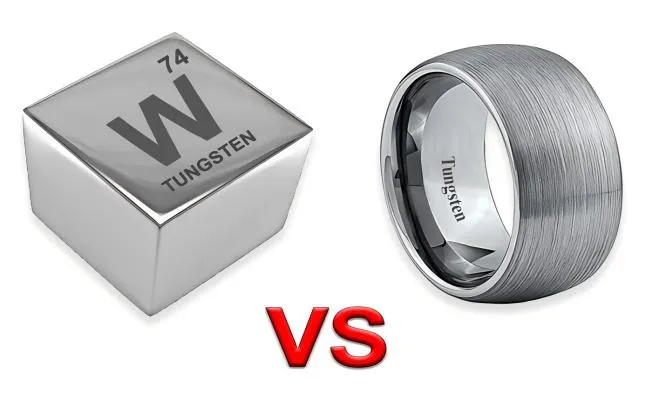The global demand for ferrosilicon has been steadily increasing over the years, making it an essential component in various industries. Ferrosilicon, often abbreviated as FeSi, is an alloy composed of iron and silicon.
Definition of Ferrosilicon
Ferrosilicon is a ferroalloy that consists mainly of iron (Fe) and silicon (Si). It typically contains around 75% to 90% silicon by weight, depending on the grade.
The alloy is produced by smelting a mixture of silica (SiO2) and coke in an electric arc furnace at high temperatures. The result is a dense solid material with a metallic luster and varying levels of silicon content.
The composition of ferrosilicon can be tailored to meet specific requirements by adjusting the ratios of iron and silicon during production. Different grades, such as FeSi 15, FeSi 45, or FeSi 75, are available with varying silicon content to suit different industrial applications.
Overview of Ferrosilicon Suppliers
Global Market Share and Key Players
Beyond its prevalence in various industries, ferrosilicon is a highly sought-after alloy on the global market. The demand for this compound continues to rise due to its versatile applications in steelmaking, foundries, and even the production of magnesium alloys. As a result, the ferrosilicon supplier landscape has become increasingly competitive.
Leading suppliers have established a significant market share and play a crucial role in meeting this ever-growing demand. Currently, several key players are dominating the global ferrosilicon market.
These industry leaders differentiate themselves through their extensive production capacity, strong distribution networks, and unwavering commitment to quality control. Additionally, they possess robust research and development capabilities that allow them to provide tailored solutions for specific customer requirements.
Factors Influencing Supplier Selection
There are several key factors that companies take into consideration when evaluating potential suppliers.
One fundamental aspect is the supplier's ability to consistently deliver high-quality products that meet rigorous industry standards. This includes having robust quality control measures in place throughout the production process and ensuring adherence to relevant specifications.
Cost-effectiveness is another crucial factor influencing supplier selection. Companies seek suppliers who can offer competitive pricing without compromising on product quality or service levels.
Negotiating favorable contracts with reliable suppliers often involves assessing their financial stability and evaluating their ability to fulfill long-term supply agreements. Furthermore, flexibility in terms of product customization is highly valued by customers seeking tailored solutions for specific applications.
Suppliers who can adapt their offerings to meet unique requirements gain a distinct competitive advantage in the marketplace.
However, selecting a suitable supplier requires careful consideration of various factors beyond market dominance alone. Companies must evaluate potential suppliers based on their ability to ensure consistent product quality while offering cost-effective solutions tailored to specific needs. Flexibility in customization options as well as reliability in supply chain logistics are also essential considerations during this selection process.
Sustainable Ferrosilicon Suppliers
Eco-Friendly Practices and Green Initiatives
Sustainability has become an increasingly important factor in supplier selection for many industries, and the ferrosilicon production industry is no exception. As the need to reduce carbon emissions and mitigate environmental impacts continues to grow, some ferrosilicon suppliers have taken proactive steps towards adopting eco-friendly practices and implementing green initiatives throughout their operations. These suppliers recognize the importance of balancing industrial growth with environmental stewardship.
Their commitment not only benefits the environment but also resonates with customers who seek socially responsible suppliers. In an era where environmental stewardship plays a significant role in shaping business reputation and consumer choices, these companies are leading the way toward a greener future for the entire ferrosilicon supply chain.
Trade Routes and Logistics Challenges in Global Distribution
Navigating the complex web of trade routes for ferrosilicon distribution requires a keen understanding of global logistics. Due to its heavy nature and the need for specialized handling, ferrosilicon transportation poses unique challenges.
The trade routes vary based on the origin of production and the destination markets, with shipping being the most common mode of transport. Suppliers must carefully plan their routes to optimize cost efficiency while ensuring timely delivery to customers across continents.
Logistics challenges further arise from the need for proper packaging and storage of ferrosilicon during transit. Given its susceptibility to oxidation when exposed to air or moisture, leading suppliers invest significantly in robust packaging solutions to maintain product quality during shipment.
Additionally, compliance with international regulations on hazardous materials transportation adds another layer of complexity to logistics operations. To overcome these challenges, suppliers often partner with experienced logistics providers who specialize in handling bulk materials like ferrosilicon, ensuring safe and secure delivery throughout the supply chain.
Quality Control Measures Implemented by Leading Suppliers
Maintaining consistent quality standards is paramount in the ferrosilicon industry, given its critical applications across various sectors. Leading suppliers implement rigorous quality control measures at every stage of production and distribution to uphold their reputation for excellence.
This begins with stringent raw material inspections to ensure that only high-grade inputs are used in manufacturing ferrosilicon. Continuous monitoring of key process parameters during production helps identify any deviations promptly, enabling corrective actions to be taken swiftly.
Quality control extends beyond production facilities into storage warehouses and transportation processes. Leading suppliers have dedicated quality assurance teams that conduct regular inspections and audits to verify compliance with industry standards and customer specifications.
Advanced testing techniques such as spectroscopy analysis are employed to assess product composition and purity accurately. By adhering to strict quality control protocols, these suppliers instill confidence in their customers regarding the reliability and performance of their ferrosilicon products.







